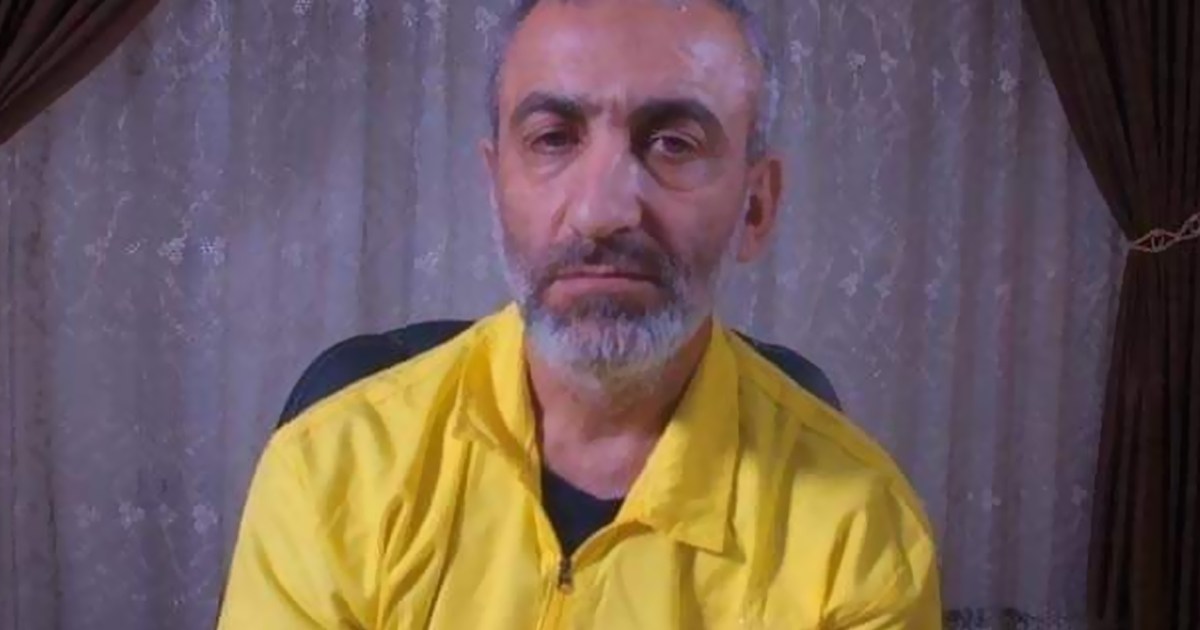The Security Media Cell in Iraq revealed the identity of Abdel Nasser Qirdash, the likely candidate to succeed ISIS leader after Abu Bakr al-Baghdadi, who was arrested by Iraqi intelligence in a statement Wednesday evening.
The Security Media Cell said in a statement posted on its account on the communication sites that Haji Abdul Nasser Qirdash was born in 1967 in Tal Afar in the Nineveh Governorate in northern Iraq, and Mosul lives in the Mushairef neighborhood, and he was the last head of the commissioned commission in the Islamic State before the killing of al-Baghdadi by the forces American last year.
Khalifa Al-Baghdadi's terrorist successor, Abdel Nasser Qirdash, was arrested pic.twitter.com/IMDWApn3pJ
Othman Al-Ghanmi (@othman_alghanmi) May 21, 2020
She pointed out that he was a data bank and witnessed to Al-Qaeda and the State organization since 2007, and since the time of the former leader of Al-Qaeda in Iraq, Abu Musab Al-Zarqawi, and he held high positions in the two organizations, most notably his leadership of the organization's battles in eastern Syria 2011-2019, among them the battles of al-Baghuz in Deir Al-Zour led by himself, and he is one of the most militant current in the organization.
She explained that Qirdash belonged to Al Qaeda in Nineveh Governorate in 2007, and worked as an administrator in the state of the island until the end of the year, where he held the position of governor of the island and during his tenure in office he carried out a number of operations targeting Iraqi forces and citizens.
At the beginning of 2010, he was assigned by the governor of the North in the organization to act as his deputy, and by order of Al-Baghdadi he was assigned to fill the position of the governor of the northern states, "south of Mosul, Mosul, Al Jazeera, and Kirkuk."
At the end of 2011, Al-Baghdadi met at the outskirts of Baghdad Governorate and assigned him to occupy the position of Emir of Industrialization and Development. Then he was assigned to go to Syria and set up weapons factories, explosives and silencers to supply the states with them, where he met Al-Baghdadi more than a hundred times.
The Security Media Cell in Iraq added that after the splits of the organization and the defection of the Nusra Front from the organization of the state, Abdel Nasser Qirdash was assigned the position of Eastern Governor of “Al-Hasaka, Deir Al-Zour and Raqqa”, then he occupied the monument of the Governor of Al-Baraka and after the announcement of the caliphate he was assigned the position of Deputy Emir of the Supervisory Committee and then the Commander of the Committee and then Deputy Amir of the Commission delegated to the organization's spokesman, Abu Muhammad al-Adnani. After the killing of Adnani, he became the committee's secretary and deputy al-Baghdadi.
The same source indicated that he was the first supervisor of the battle of Kobani, the battles of the city of Palmyra, Aleppo, Damascus, and the battles of Al-Bab, and he had a prominent role in most of the negotiations that took place between the organization, the factions, and other groups, and he was the supervisor of all administrative joints and the manufacturing and processing joints at the time.
Announcement of arrest
The Iraqi Intelligence Service announced on Wednesday evening the arrest of Abdel Nasser Qirdash, according to accurate intelligence, without revealing the place of detention.
Al-Baghdadi was killed in a US airdrop last October in the countryside of Idlib Governorate (northern Syria). Later, the organization appointed Abu Ibrahim al-Hashemi al-Qurashi as its leader, succeeding al-Baghdadi.
Usually, ISIS uses pseudonyms for its leaders and members to protect them from prosecution and arrest.
The announcement of the arrest of a potential candidate to succeed Al-Baghdadi in the Islamic State coincides with the escalation of attacks by suspected militants affiliated with the organization, especially in the region between Kirkuk, Salah al-Din (North) and Diyala (East), known as the "Triangle of Death".
In 2017, Iraq declared victory over the organization, after restoring all the lands that were estimated to be about a third of the country’s area, and which the organization invaded in the summer of 2014.

